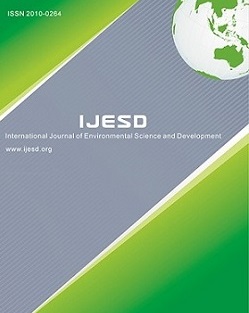
International Journal of Environmental Science and Development
International Journal of Environmental Science and Development (IJESD) is an international academic open access journal that gains a foothold in Singapore, Asia and opens to the world. It aims to promote the integration of Environmental Science and Development. The focus is to publish papers on state-of-the-art Environmental Science and Development. Submitted papers will be reviewed by technical committees of the Journal and Association. The audience includes researchers, managers, and operators for innovation, management and technology as well as designers and developers.
All submitted articles should report original, previously unpublished research results, experimental or theoretical, and will be peer-reviewed. Articles submitted to the journal should meet these criteria and must not be under consideration for publication elsewhere. Manuscripts should follow the style of the journal and are subject to both review and editing. The topics covered by IJESD can be found at Aims and Scope.
